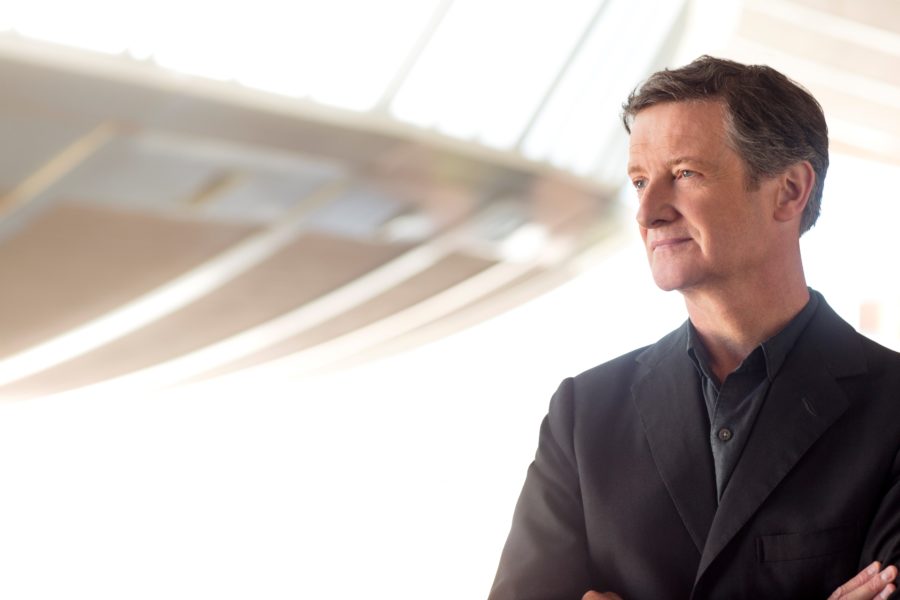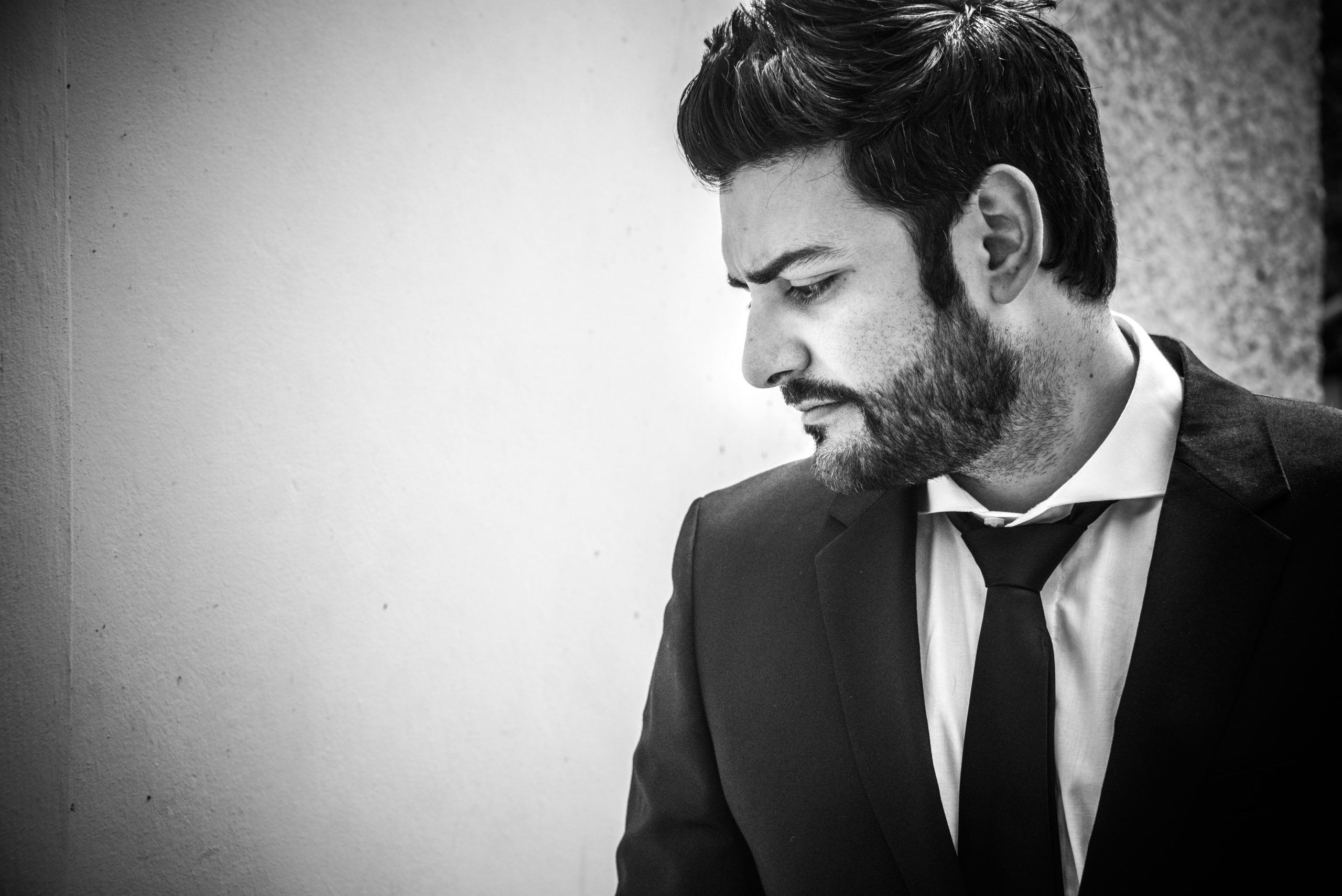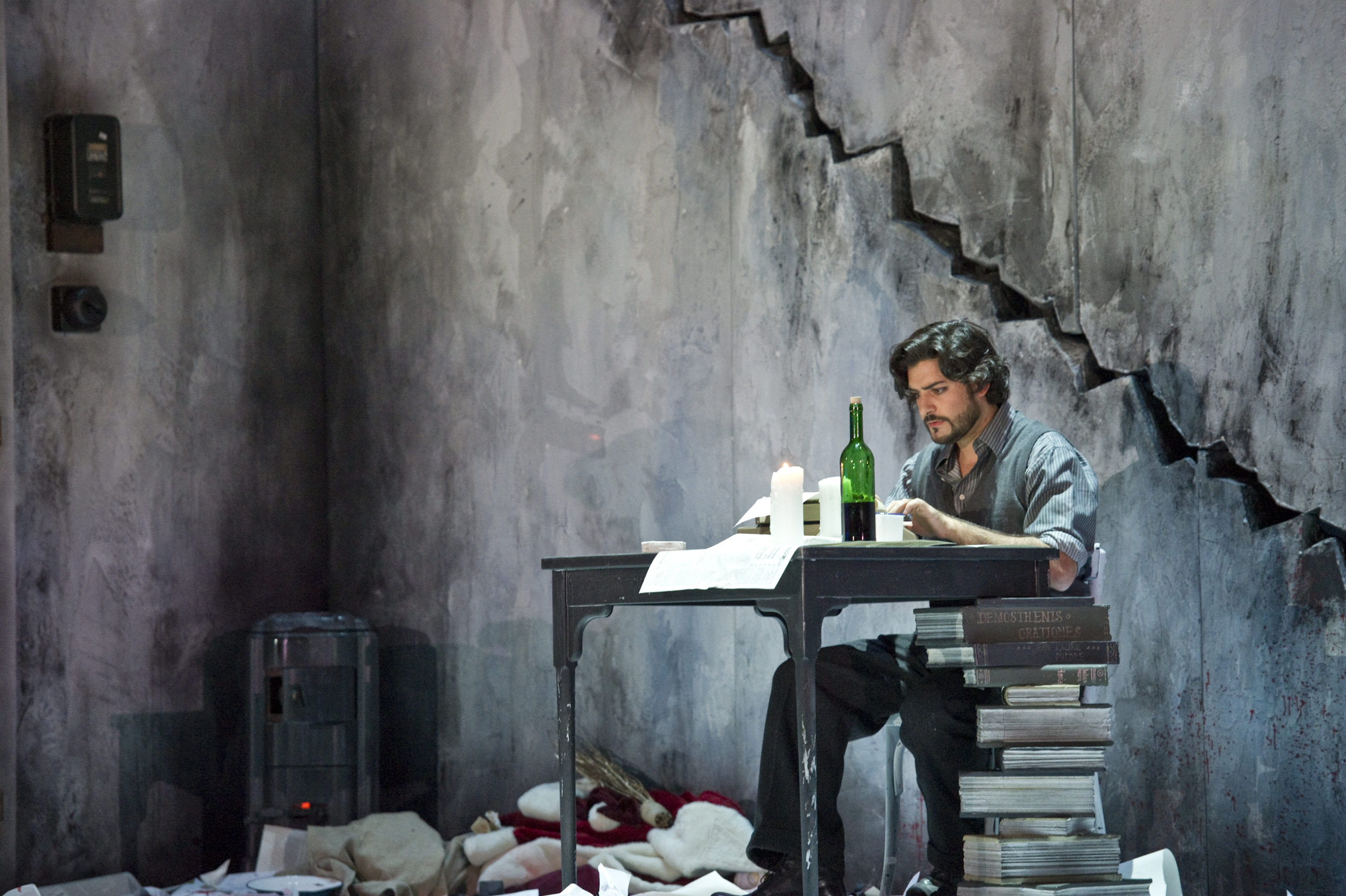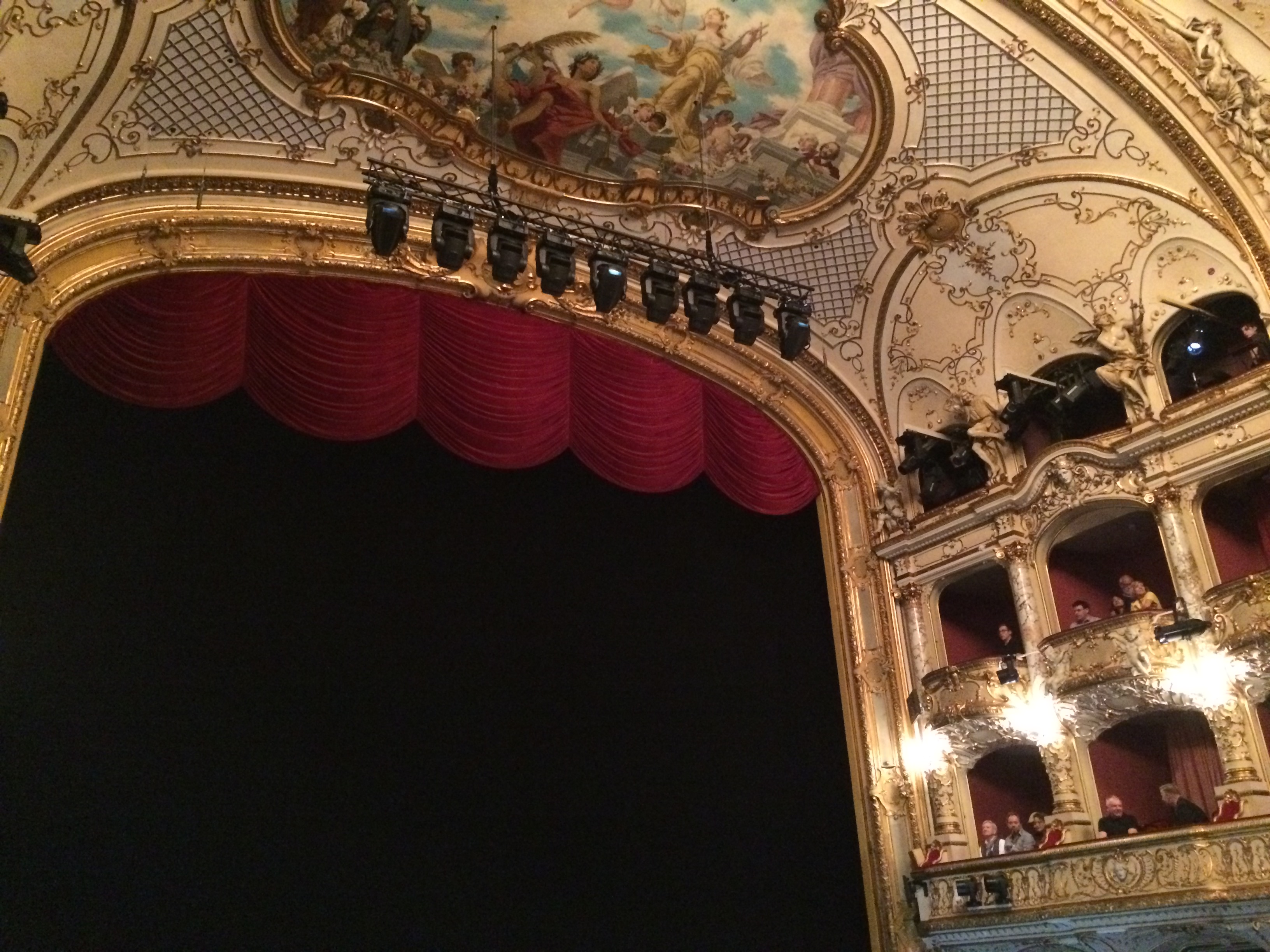Baroque music might be the classical form that comes with greatest number of clichés. It is arch, it is highly formal, it possesses a tight structure which erases any notion or expression of emotion; it is repetitive, it is fussy; once you have heard a bit, you have most certainly heard all – these are the bit of baggage I carried myself whenever I would sit down at the piano and play the works of Bach, Telemann, and Handel. I knew the notes well enough, and I didn’t care; I understood the repetitions, but they were dull. Along with grey hair and wrinkles, adulthood brings maturity (one hopes), patience (sometimes), and a deeper appreciation of form and content, and the connections therein. So arrives a greater energy put toward understanding the myriad of emotional expression wrought by artful engineering; through time da capo comes to mean something more than the snazzy hat from youth now gathering dust in the hall closet. Those olives that were once so acrid are now heavenly; those anchovies once so bossy on the palate now meltingly luscious – those repetitions once so dull are now so… real, so immediate, so achingly, recognizably human – messy, even, just the way humanity, and all manner of human relating, happens to be.
That immediacy, so inextricably and intimately linked with baroque itself, is something conductor Harry Bicket knows well, as his recording and performance history so thoroughly demonstrate. Bicket started out as a pianist at the Royal College of Music, and went on to be an organist at Westminster Abbey, from there going on to play freelance harpsichord through the 1980s with Christopher Hogwood, John Eliot Gardiner – and Trevor Pinnock, who, significantly, co-founded The English Concert in the early 1970s. In 1990 Bicket led Handel’s Ariodante at English National Opera – it was his was his first outing conducting an opera – and it was the success of that production (by David Alden) which led to an invitation to lead Handel’s Theodora at Glyndebourne with director Peter Sellars. From there, productions with Bayerische Staatsoper and the Metropolitan Opera soon followed, opening the doors to something of a baroque opera revival. Maestro has appeared at The Royal Opera Covent Garden, Lyric Opera of Chicago, Houston Grand Opera, and the Canadian Opera Company, to name just a few, and has also led concerts as guest conductor with The Cleveland Orchestra, the Los Angeles Philharmonic, the Los Angeles Chamber Orchestra, the Detroit Symphony Orchestra, the Boston Symphony Orchestra, and led masterclasses at The Juilliard School. Numerous appearances with Santa Fe Opera (starting with his first, Agripina, in 2004) led to his being named the company’s Chief Conductor in 2013, and in 2018, the Music Director. He led two of the company’s 2021 productions (The Marriage of Figaro and A Midsummer Night’s Dream) and is set to lead a new production of Carmen for Santa Fe’s 2022 season.
Bicket became Artistic Director of The English Concert in 2007, and has left an indelible mark on what is considered by many to be one of the finest baroque chamber orchestras in the world. The group, who play on period instruments, have conducted lauded international tours and played numerous concerts at their London base, in an assortment of venues, including Wigmore and Cadogan Halls and the Southbank Centre. The group’s recording of Handel’s Rodelinda, released earlier this year (Linn Records), is miraculous in every respect. Its stellar cast includes piercingly beautiful performances by soprano Lucy Crowe in the title role and countertenor Iestyn Davies as Bertarido. Handel’s opera, premiered in London in 1725, is one of his most popular, if also deeply touching, with its themes that explore ideas of power, loss, grief, and the nature of fidelity. The production was originally scheduled for presentation at Carnegie Hall, but pandemic realities rendered that plan impossible; instead, a recording was done at St John’s Smith Square, London in September 2020, with musicians and singers observing formal distancing protocols. Despite, or perhaps owing to such mandated distancing, the work has a rich aural cohesion of instruments and voices, a quality one might associate more with late-nineteenth-century German opera than with baroque opera, although the distancing contributes what Fiona Maddocks noted (in her review at The Guardian) as “a sense of risk to music already, in its energy and complexity, on the edge.”
Bicket knows that edge very well, and his attention to detail is palpable; he led a hailed production of the opera at The Met in 2004 (the opera’s first-ever production of the work in the history of the company), and returned for a revival in 2012. In March 2022 he returns to the pit at The Met once more, leading Elza van den Heezer and Iestyn Davies. He told San Francisco Classical Voice‘s Michael Zwiebach in early November that his work with the chamber-sized The English Concert, which he leads from the harpsichord, forces such attention to detail:
[…] all this music, obviously, is based on text, and the music exists because of the amazing libretto and also the characteristics of the Italian language. You know, every double consonant, every diphthong, every open vowel, every closed vowel: How do we find a color in the orchestra to match that. Because if we don’t do that, we are the equivalent of a singer that goes on stage and sings “lalalalala.” So I say to the orchestra, “look this word begins with a hard ‘S’ not a soft ‘S’ so our bowstroke has to be a sibilant ‘S’.” Now we have a common language so we can do that quite easily.
Earlier this month Bicket and The English Concert went on a much-awaited mini-tour of California, presenting a series of in-concert performances of another Handel opera, Alcina, with stops in Los Angeles and Berkeley; the stellar cast included Karina Gauvin, Lucy Crowe, Elizabeth DeShong, Paula Murrihy, Alek Shrader, and Wojtek Gierlach. Bicket and I spoke between those performances, about that needed detail, travel realities amidst pandemic, the recently-announced 2022 season at Santa Fe Opera and why he loves its house, how atmosphere informs experience, and why he feels it’s vital to fight for the continuance of live performance in an atmosphere of digital streaming.
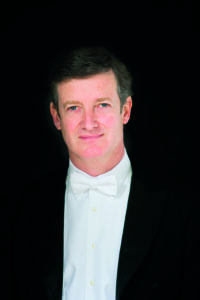
Photo: Richard Haughton
How is California treating you?
Good! We had our first performance two nights ago when we were very jet-lagged; it was an effort to get through the third act of the programme – it was 5am for us! – but we did well.
Is this your first time being on the continent since the pandemic?
Yes, we only got in, really by the skin of our teeth. Any other organization might’ve not bothered going it, but we were determined to make it work. All the orchestra had to get visas, these NIEs they’re called, National Interest Exceptions, which are notoriously hard to get; you have to go to the (American) embassy, be interviewed, each member has to be able to prove they can come, then they take your passport away and don’t tell you if you’ve got your visa or not.
Is that paperwork only because of the pandemic?
Yes, although starting next week you can get on a flight to the United States without any of this paperwork – I mean, as a musician, you always need a visa, but at the moment, because (the border) is still technically shut down and they are not allowing Europeans in, and if you do come in you have to prove your work is essential, which is quite hard to do and very labour intensive. We’d already booked flights and hotels and everything, so we’d have taken a huge hit had we not made it, but it worked.
So traveling to the U.S. was a real leap of faith then…
It was! This was the third time we’ve tried to do this in Los Angeles, it’s been three years in a row trying now, the first two years were cancelled because of both lockdowns and we thought, “We can’t not do it now!”
What’s the atmosphere been like?
We had a very joyful time the other night, but obviously ticket sales are down and they’re not going to come back immediately. I mean with Santa Fe this summer, people were crazy ordering, but that is more of an outdoor space, so perhaps people feel more comfortable going there, but it’s depressing to think if people don’t want to come back to live theatre and music overall.
Have you found this pandemic has revealed an intercontinental chasm in terms of those audiences?
I think in Europe it varies from country to country in terms of the strictness (of safety protocols and related enforcement) – L.A. is pretty hardcore on those rules; you can’t go to restaurants without proving you’re double vaccinated. We’re being tested the whole time we’re here. People wear masks walking down the street – and in L.A. the streets are the size of five blocks anywhere else, but people wandering around here, not near anyone else, are doing it with masks. You see it. It’s mandated. And so it feels very locked down, in a way. The audience has to show proof of vaccination also, but I think it’s too early to tell, to be honest, how long things may last, and how people will react once things are just open. I mean, my sense in Europe is that we’re over it. I think now that the majority of people are vaccinated, and I think everyone accepts masks are here to stay and for certain rules and distancing, to a certain extent, to keep going, but it’s more a question there of, “how do we live with it?” rather than, “when will it be over?” – because it won’t really be over.
In your line of work you must hear of the attitude to baroque music – that it is emotionless, clinical, cold – but I don’t feel that listening to your Rodelinda at all.
I understand what you’re saying about those attitudes, though!
A lot of those clichés get perpetuated – in media of various forms, and even by some musicians!
I wasn’t an early music person years back; I was a pianist. I listened to Rachmaninoff and a lot of contemporary music. It was only by chance I got into earlier stuff partly because I started playing harpsichord for groups in the 1980s and yes, I don’t know why I ever thought baroque was boring but I thought of it as rather crystalline, this sort of perfect thing, and then I started working with certain theatre directors who were staging Handel operas particularly, and that was such an eye-opener, the depth of passion and also how very human that work is. We’re so used to opera being very telescoped, like Mimi and Rudolfo meet and three minutes later they’re singing a love duet and we accept that: “That’s opera, isn’t it?” But I always sat there and thought, “Oh come now, that’s absurd, really!”
In a Handel opera, for all the convoluted plots – well, it’s not really about those plots at all. After every recit you’re hearing someone for ten minutes, exposing their inner life, their inner thoughts, in real time, with two sentences – which is actually a very human thing. I spend a lot longer than ten minutes if there’s a grief in my life of an issue, so it does require a certain amount of recalibration in terms of the way we listen to something. Great are the artists who can really invest the repetition of these words in a way that makes clear the same words but constantly gives them a new meaning – like a person holding up a prism; it’s the same prism, but your turning it to the right, then the left, the light moves through it in a slightly different way. It’s a prism, it’s the way we use words. You can say ‘I love you’ as words, but how many different ways can we say those three syllables? That’s what Handel, for me, really explores. And this apparent simplicity, and some would say rigidity, of form becomes something really powerful.
Structurally it reveals so much, but often it feels like some people can get hung up on those repetitions; my mum used to say, “The music is all the same from this point on” – but it isn’t…
.. and that applies just as much to non-opera music! I’ve had discussions with orchestra members performing Mozart and Haydn symphonies and they’ll say, “Oh God, do we have to do the repeat? It’s just the same music…!” but you look at later repertoire where the composer writes out the repeats, and they don’t have a problem with that. You put a double bar there and they go, “Oh, let’s just go on, why are we doing it at all?”
And for opera especially, there is that theatrically rich territory related to that element…
That’s right…
… so it’s a prism as you say, but sometimes one requiring strength training for arms and shoulders to hold it up, and especially to hold it up in a way that allows the seeing of new things. How much do you think working those arms and shoulders is necessary when coming to something new? There is a debate now about preparing for classical events beforehand – what’s your take?
In terms of telling the story, I don’t… well, I mean, sometimes I don’t think a lot of these pieces are about the actual stories, they’re stories which were well known in the 18th century, it’s not like people came to Alcina going, “Hmm, I wonder what happens?” Everyone knew the story of Orlando Furioso; what the composer was doing was taking a snapshot of the middle of that book and exploring these characters, so to me it’s all about character, I mean plot is really secondary.
In terms of doing the homework before you go, of being a good listener, and/or getting the most out of enjoying a performance, I mean, different people have different ways of approaching it; a lot of people say, “Oh we always listen, we start couple weeks before going to this or that, it’s how, so we know what we’re coming to and understand it all” – and I think that’s fine. But equally, personally, I love going to pieces that I’ve never seen or heard before and not really doing that sort of study – not because I’m lazy, but I’d rather do it afterwards, so if I see something, if it can’t interest me on a surface level, more often than not I’m intrigued and maybe I’ll go back and see it again, or not.

Santa Fe Opera with the Jemez Mountains in the background. Photo: Robert Godwin
Looking into it later depends on the circumstances in which one experiences it in the first place, though. In Santa Fe the venue is outdoors; how does that affect music-making?
In acoustical terms it’s a very good – it doesn’t feel like an open-air theatre. It’s really a remarkable pit and stage area which allows the sound to be as good as any indoor theatre. I think the audience knows what this mysterious alchemy is if they’ve been before. And I think if you go there and you sit under the stars and watch the sunset go down behind the mountains – and often directors have the back of the set open during the sunset so you look through the set so the mountains become part of the set –I think then, if you hear some profound, beautiful music in amidst all that, it’s like you just drank three bottles of wine. It’s so rich and so powerful. And I would say it’s more powerful for some than going to a city centre opera house, battling the traffic and all that. Working (in Santa Fe) is the same thing; every morning, you drive up the hill with yet another beautiful cloudless sky, and you see these incredible gardens and rehearsal spaces, which are outdoors as well. I find that people’s spirits are so open because there’s something about that landscape and way of working that makes people happy. Musicians, by and large, have difficult working conditions, I mean for some places, not all – not everybody has what’s (in Santa Fe), which is very much a place of hard work as well. It’s not summer camp; it’s an Eden where people expect you to work very hard and the level is extremely high, so it’s not a pool party.
But how much of those expectations have changed now because of the pandemic? I would imagine there’s an extra layer of pressure.
I was very bullish when we were talking about reopening there, and about how exactly we can reopen. There were many questions: can we have a chorus onstage? Will we all have to wear masks and be distanced? A lot of decisions had to be made in February-March even though we didn’t rehearse until June. The thinking was, “In June it might be better, or “In June it might be worse!” We had to make a lot of those decisions, but I was very keen to quash this thinking of, “Oh look, it doesn’t matter if we don’t have the chorus onstage, the audience is so grateful we have a season at all!” I said, “No, no, no, that’s not part of this story! We have to be good, I’ll not have people making allowances.” “Oh, but we could be creative! We could use the restrictions in a creative way!” – this attitude to just sort of cop out and say, “Let’s work with those rules, everyone will be fine with them” – well I wouldn’t be fine. I would not be fine.
But that move toward allowances, of relegating everything to digital without any demonstration of willpower with regard to live presentation’s return, has become been a frustratingly common norm for certain companies. It makes me question whether the people working there really understand the nature of what they supposedly want to produce.
Well, this magic of the live experience is not just a thing in Santa Fe, which is particularly a unique experience – you don’t get that everywhere! – because it’s not something strictly related to landscape or setting .. it’s this thing of listening to music, together, with fellow human beings who you don’t know, who maybe you don’t even say hi to, maybe you sit there on your own, but you are all there, communing, for the evening, and you then disperse to all parts of the world. And you were all just at a totally unique performance, an experience you will never be able to replicate. When you watch a stream or edited concert, you know when you press ‘play’ what it’s going to sound like, every time, guaranteed, absolutely – it will be the same. But there is no danger, there is no excitement.
The whole point of live theatre is that we, as human beings, can communicate with each other – artists, performers, musicians, and audiences do that too, just by being there, together: loving it, hating, being indifferent to it. It is really important as a society that we do this.
So if you don’t get that, well, then anything I say will not make a difference anyway, but it will for the people who do come and experience it and get something out of it, or not – not everyone does! But then, not everyone who goes to a restaurant likes the food either; what’s important is that we go and eat, and that we can still do it, together.
It’s the act itself that counts.
That’s right.
Now with your live tour now, you have an amazing cast…
Yes we sure do! In a way one of the nice things… well, if you can say that about pandemic, but the fact is, when things like this are done at such a high level in these conditions, a lot of people are saying, “I want to be a part of that!” So a lot of singers through this period have looked at their lives, having had almost two years off now, and said, “I want to do the work that I really want to do; I’m just not going to take every single thing and be crawling up that ladder the whole way through my career, but pick the things I’ll get some personal satisfaction from as well.”
But that satisfaction, those projects existing at all, is, in some places, rather miraculous. Alexander Neef said in our conversation last year that he thinks classical companies should be embracing risk more than ever right now, so to your point, perhaps musicians are picking and choosing, but there has to be the will to make those projects a reality in the first place.
I think we have to be more aggressive with that. At The English Concert, we have a fantastic manager who is also our principal viola – I think having a musician there in that position is a good thing, at least from my point of view. He knows the value of an orchestra of working, and of being part of an orchestra; it’s a group of people, together. And if that group is sitting at home, not working, well, you’re not really an orchestra, are you? It’s not like being a resting actor; an orchestra, by definition, plays together, and it’s really important we are working, together. For instance, this tour was meant to be bigger, we were meant to go to Bogota for ten days, then go back to the U.K. via New York; Bogota got cancelled, it was put on the red list until a few days ago. We took the choice to cancel that, and our manager said, “That’s fine, we’ll do a week of recording in New York then” and I thought, “Oh really?” because I knew this tour would be busy – but actually, I also thought, “Good, yes, let’s keep working, let’s keep doing this.” So let’s keep knocking on doors, sometimes kicking those doors down – and let’s keep doing it.

